Do you need to be a CPA to begin an international accounting career?
While being a certified public accountant (CPA) presents plenty of advantages, you don’t need to be one to start your international accounting career.
A bachelor’s degree in accountancy or a related discipline, plus at least two years of work experience, will be enough to apply for many roles in international accounting firms.
How you spend those two years, however, can help you set a great foundation for sustained growth throughout your accounting career path.
Here’s a partial list of what you can accomplish:
- Save up for review classes to help you prepare for the CPA licensure exam or take the Certified Management Accountant® (CMA) program, a credential in great demand among U.S. firms.
- Gain experience in using cloud-based accounting software.
- Explore what accounting field you want to gain in-depth skills in. That could be auditing, tax advisory, management accounting or new fields like accounting information systems and sustainability accounting.
Find out what courses you need to take, if any
It’s possible to start working with Australian firms as soon as you can show how well you know their country’s accounting practices and standards. Explore short courses that can train you on Australia’s tax system and regulations, such as the Australian Accounting Introductory Course.
If your dream career revolves around investment strategy and financial advice, a role in self-managed super fund (SMSF) accounting is a great start. Demand for SMSF accountants keeps rising in Australia, and young accountants who invest in learning SMSF concepts and software gain valuable skills.
Ab² Institute of Accounting runs the award-winning Accelerator Program for TOA Global, a leading talent solutions provider for the accounting industry. In just five to seven weeks—during which they get paid to train—participants gain in-demand skills that will prepare them:
- to work as a Generalist Accountant for an Australian or U.S. firm
- to join an Australian or U.S. accounting firm as a Bookkeeper
- to work as an SMSF Accountant for Australian firms
- to pursue more advanced credentials like the Certified Management Accountant or CMA® program or the Certificate IV in Accounting and Bookkeeping FNS40222
Always keep building compentence
Curiosity contributes to competence. Stay curious.
In accounting, The World Bank defines competence as “the ability to demonstrate the necessary technical and professional skills, values, ethics and attitudes at sufficient levels of proficiency to fulfill the role of a professional accountant in a manner that meets the needs and expectations of employers, clients, peers and the public.”
Here’s an easy way to build competence: Try searching for your preferred media (podcasts, guides, books, webinars) plus the accounting industry subject you’re curious about. (For example: “Podcasts about success skills for accountants”)
Treat this as a habit replacement challenge, which Atomic Habits author James Clear recommends.
If you spend 60 minutes a day on social media or video games, for example, use those 60 minutes at least once each week to explore industry issues. (Replace one habit with a more productive one.)
Consider these subjects:
- Cybersecurity for accountants
- Accounting software courses
- Artificial intelligence in accounting
After joining a webinar, connect on LinkedIn with the speakers whose presentations impressed you and the participants whose comments or questions made you think.
Take note of the authors and industry experts whose names come up and find out if they also discuss accounting on their social media channels.
Work on your three Cs: Critical Thinking, Communication and Client relationship skills
While accounting has changed, some accountant stereotypes have yet to do so. Accountants are seen as risk-averse number-crunchers, who would rather be working on a spreadsheet than presenting in the spotlight.
The reality is that good accountants are more well-rounded than some people think. And they need to be.
“There is a clear need for a well-rounded skill set that combines technical and professional skills that are rooted in relationship-building and communication,” John Edwards, CEO of the Institute of Financial Accountants, wrote in November 2022.
“What is important is for finance leaders to build connections with staff and be open to feedback. Stronger communication skills will help professional accountants in managing risks and effectively convey the risks within the greater business function.”
Your ability to think critically, communicate clearly what financial information means and attend to your clients is where your value as an accountant gets shown in the best light.
If you’re curious about how to gain these skills, explore our courses in the essential Success Skills collection of the Ab² Institute of Accounting:
- Communicating with Influence
- Critical Thinking
- Customer-Centric Mindset
- Mental Fitness
- Virtual Presentation Skills
Explore your options
Founded in 2018, Ab² Institute of Accounting offers training courses for accountants at every stage of their careers.
From entry-level professionals to firm owners, our course participants find that the benefits of an Ab² course are worth the time and resources they invest in it.
When you complete an Ab² course, you get a head start on your international accounting career. You can boost your earning potential and grow quicker with international accounting firms, whether you choose to stay in your home country or work overseas. It’s your call.
Book your free consultation today: https://ab2institute.com.ph/




